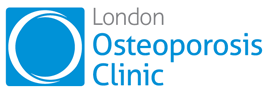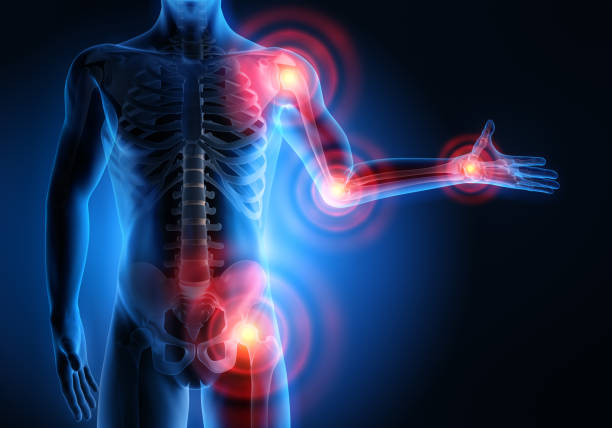There are 3.5 billion women on the planet, all of whom will go through menopause at some stage in their lives. In the UK, The average age of menopause is 51 years old. A woman officially reaches menopause when she has gone through 12 consecutive months without a period. The time leading up to this is called the perimenopause. During this transitional time, the levels of the hormones estrogen and progesterone fluctuate, giving rise to the symptoms of menopause that we are all more commonly aware of irregular periods, hot flashes, night sweats and the effect on mood.
Estrogen receptors are also found in the synovium of joints. It is this decline in estrogen in the run-up to menopause that can give rise to joint pains and stiffness.
Osteoarthritis is the most common form of arthritis in men and women. It is usually related to wear and tear of our joints and ageing. It is more prevalent in women than men and increases in incidence from 50 years of age.
You can see that a woman heading into menopause is, therefore, also on a fast track course to getting symptoms of arthritis. Often, a woman in her mid-40s will say that her joints feel stiff in the mornings, and it takes about half an hour to loosen up.
25% of women over the age of 45 years will present to their GP with joint pains, usually in their neck, knees and hands, and 50% of women over the age of 50 years will present with typical symptoms and associated menopause symptoms. Often, some of these symptoms are self-limiting and resolve within 2-5 years, i.e. coinciding with their menopause symptoms.
It has been shown in trials that hormone replacement therapy can alleviate these symptoms, so there is a clear link between arthritis around menopause and oestrogen deprivation.
In summary, joint pain and stiffness in the menopause transition is a common problem and related to oestrogen fluctuation and decline. It can also be the early signs of inflammatory arthritis, endocrine issues and malignancy, so it’s important to exclude these before considering hormone replacement therapy appropriate to the individual. If in doubt, please see your doctor or rheumatologist.
References
Menopause and HRT are important aetiological factors in Hand Osteoarthritis; results from a cross-sectional study in secondary care, Professor Fiona Watt, Kennedy Institute of Rheumatology, University of Oxford, UK.
Menopause Arthralgia, Fact or Fiction , Maglorzata Magliano, Maturitas 2010


One Comment